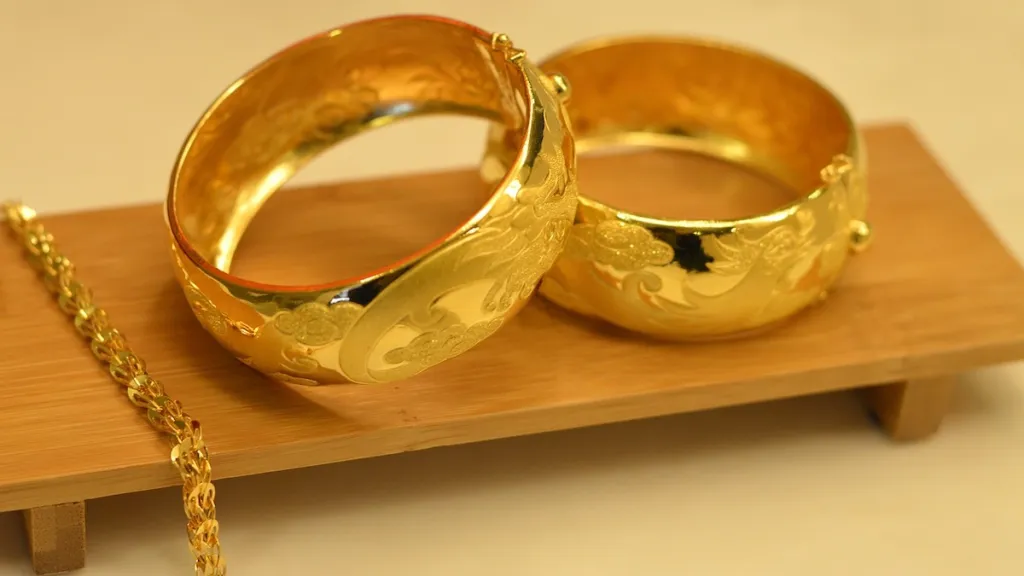Gold loans are a secured loan where you can borrow money by pledging your gold ornaments, coins, or bars as collateral. They are a popular form of short-term financing. The loan amount offered is usually a percentage of the gold’s value, and the borrower is required to pay interest on the loan amount. This provides a quick and convenient source of funds, as the loan approval process is relatively fast, and there is no need for extensive documentation or credit checks. In case of default, the lender has the right to sell the gold to recover the outstanding loan amount.
Deciding whether to sell your gold or opt for a gold loan depends on circumstances. Selling gold can provide immediate funds, but it involves parting with your asset. On the other hand, a gold loan allows you to retain ownership of your gold while accessing funds for a specific period. If the gold holds sentimental or emotional value, or if its value is expected to appreciate over time, opting for a gold loan might be a more suitable choice.
However, it is crucial to carefully evaluate the interest rates, repayment terms, and the ability to repay the loan on time to avoid losing the pledged gold. Financial planning, understanding personal needs, and assessing the short-term versus long-term benefits are essential in making an informed decision on whether to sell gold or take a gold loan.
Here are some checks for you before you plan to sell your gold.
Research the current market value of gold
Before you decide to sell your gold, it’s crucial to know the value of your gold items. It’s important to research the current market value of gold to ensure that you are getting an honest price when selling.
Determine the purity
Not all gold items are created equal. The purity of your gold, also known as its karat weight, will affect the value of your gold. It’s important to know the karat weight of your gold before selling. Finding a trustworthy gold buyer is essential for getting the best value for your gold. Research different gold buyers in your area, read customer reviews, and check if they are licensed and accredited.
Adhil Shetty, CEO, Bankbazaar.com, says, “Physical gold is easy to buy, but not so easy to sell. You could still sell it for cash to certain jewellers at prevalent market prices. But finding such jewellers and going through the verification of the gold’s purity can be tedious. You also need to preserve the gold’s invoice. Without it, retailers may refuse to buy the gold. In other cases, they may not give you cash, but give gold worth an equal value in exchange.”
Consider the fees
Some gold buyers may charge additional fees or deduct a percentage of the value of your gold. It’s important to ask about any additional fees involved before agreeing to sell.
Understand the selling process
Make sure you understand the entire selling process, from start to finish. This includes knowing how your gold will be evaluated, how you will receive payment, and any paperwork involved. Some gold buyers may charge additional fees or deduct a percentage of the value of your gold.
When it comes to gold, it is not just the physical gold that you can keep as an investment asset. These days you can invest in digital gold as well. The best part of such gold investment is that the chances of getting returns increase. In physical gold you must pay making charges and your gold may be sold less than the current market value.
However, in case of selling digital gold, there won’t be any deduction for making charges etc. There are different types of gold investments available
Digital gold buying options:
Gold ETFs: Gold ETFs are a type of mutual fund that tracks the price of gold. ETFs are traded on stock exchanges so they are very liquid and easy to trade. However, ETFs do not give you physical ownership of gold, so you do not have the same control over your investment as you would have with physical gold.
Gold mutual funds: Gold mutual funds are similar to gold ETFs, but they are not traded on stock exchanges. This means that they are slightly less liquid, but they may offer lower fees.
Sovereign gold bonds: Sovereign gold bonds are government-issued bonds that are backed by gold. These bonds offer a fixed interest rate, and you can redeem them for physical gold at maturity. Sovereign gold bonds are a relatively new investment option, but they have become increasingly popular in India.
Digital gold: Digital gold is a new form of gold investment that allows you to buy and sell gold online. Digital gold is not physical gold, but it is backed by gold reserves held by the company that you buy it from. Digital gold is a convenient and easy way to invest in gold, but it is important to do your research before you buy to avoid any regulatory concerns later.
Shetty adds, “Gold provides utility as jewellery or personal items. Gold bullion provides a mode of investment. But gone are the days when you needed to buy gold in physical form. You can now buy gold in dematerialised (demat) form as ETFs, MFs or bonds. When considering gold purely as an investment, these options may be much better for you.”
By checking these key factors before planning to sell your gold, you can ensure that you get the best value for your gold. Remember to take your time, do your research, and find a trustworthy gold buyer for a smooth and successful selling experience.
GOING ONLINE
* Buying digital gold instead of physical gold may increase returns for the seller
* For the latter, you would have to pay making charges, for which there would be a deduction
* Because of this, gold may be sold at a rate lesser than its current market value

